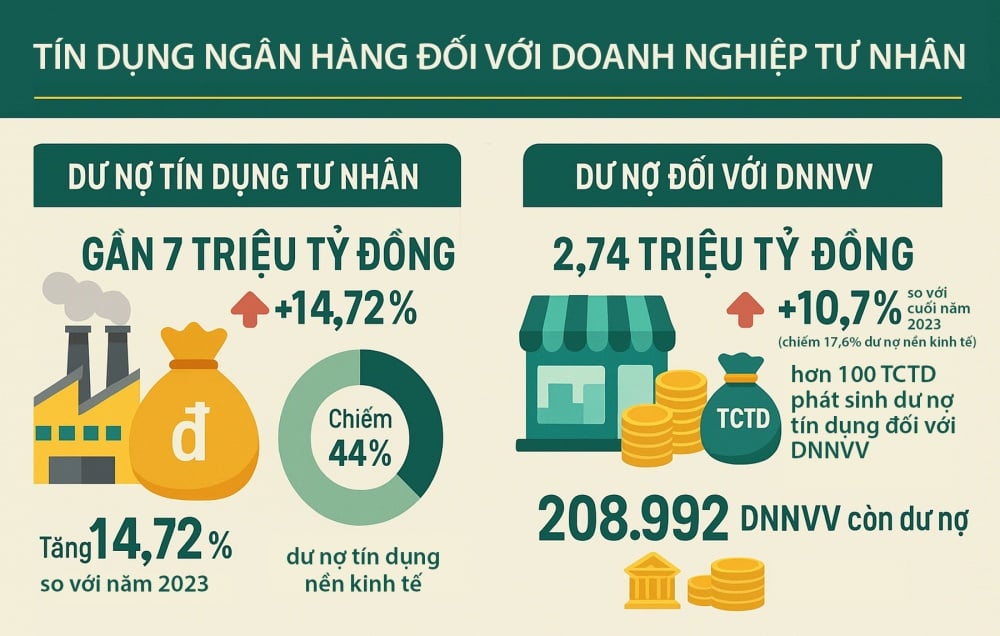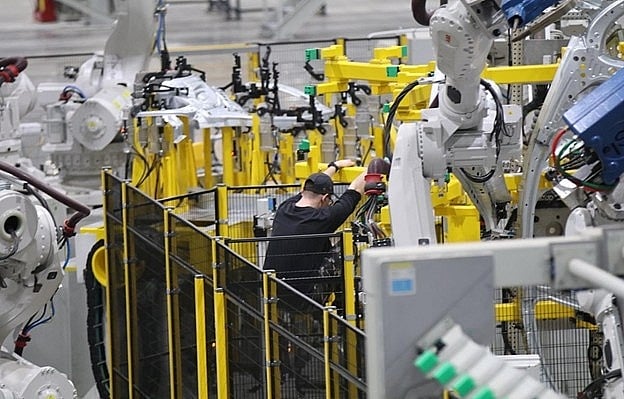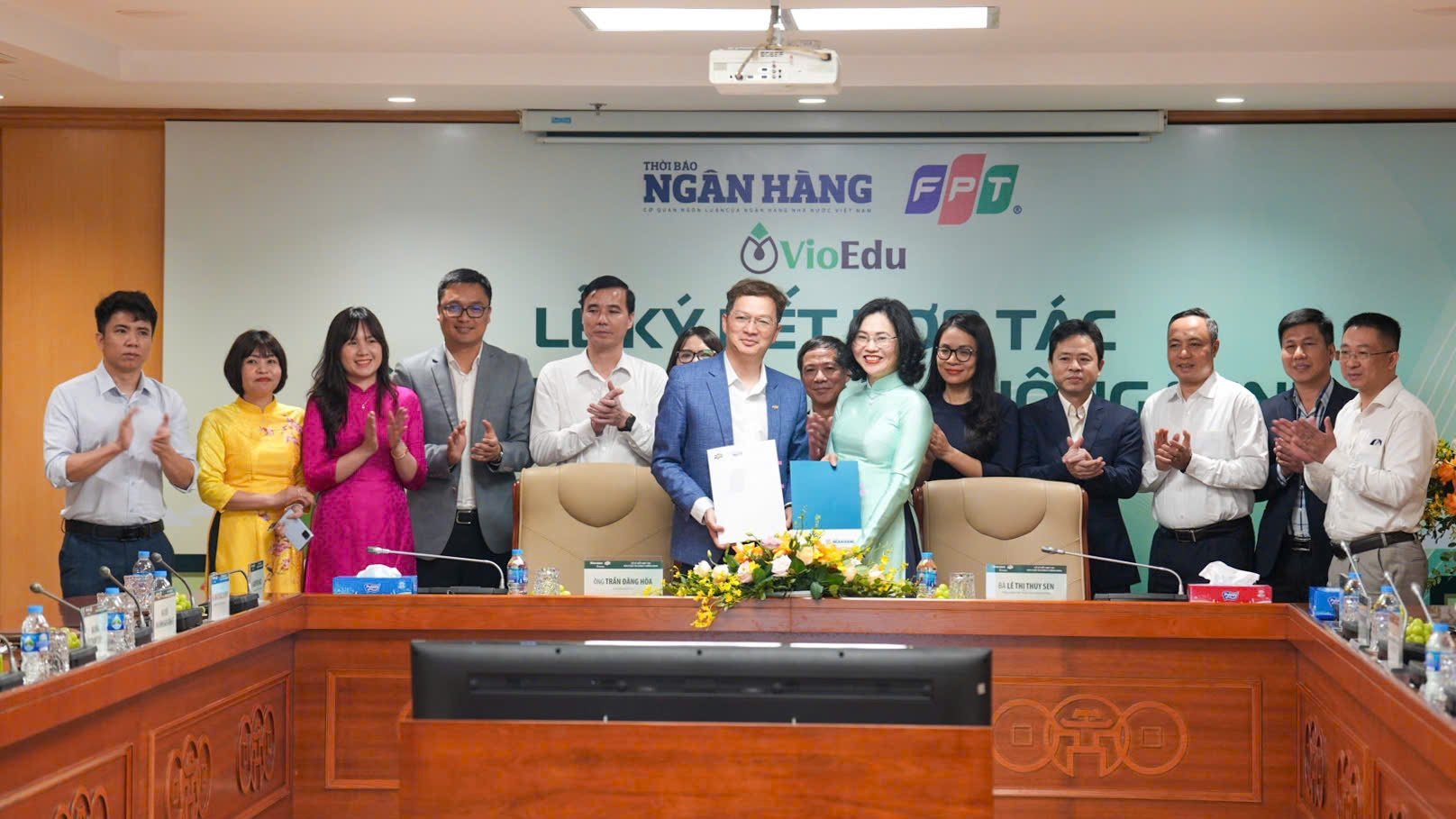 |
With a well-planned strategy and proper support, the private economy will certainly become a solid pillar and leading driving force, contributing to making Vietnam a developed economy, among the high-income countries by 2045. |
For a prosperous economy |
According to experts, the application of technology in private enterprises is still limited due to lack of capital, lack of highly qualified human resources and lack of a systematic digitalization strategy. Although some large enterprises such as FPT, Viettel, VinFast ... have pioneered the application of technology in management and production, for the majority of small and medium enterprises (SMEs), digital transformation is still a difficult problem. For the digital transformation process to take place strongly, policies to support private enterprises also need to be substantive. The Government is well aware of this issue and is implementing a series of support policies. The general spirit is that the policies must be "feasible, innovative, and applicable to life", creating the most favorable conditions for private enterprises to access technology, financial resources and market opportunities. According to Dr. Nguyen Si Dung, former Deputy Head of the National Assembly Office, focusing on high-tech fields such as artificial intelligence (AI), Blockchain, Big Data and e-commerce are pillars of the digital economy, helping to increase labor productivity and enhance the competitiveness of Vietnamese enterprises. “Promoting the application of technology not only helps to improve the competitiveness of the economy but also creates a strong driving force for innovation in the private sector,” said Dr. Nguyen Si Dung. |
 |
Deep integration into global value chains and sustainable development |
In addition, although the private economic sector has made great contributions to total export turnover, most enterprises still participate in supply chains in the form of processing or raw exports, which do not create high added value. For the private economy to develop strongly, a long-term strategic vision is needed. This does not stop at expanding export markets but also requires enterprises to increase product value, build brands, proactively participate deeply in the supply chain to achieve higher added value and strengthen international links. Many industries have the potential to participate more deeply in the global value chain, such as food processing, electronic components manufacturing, textiles, agricultural products, etc. However, to really go far, the private sector needs to focus on quality, sustainability and innovation in products instead of just focusing on price. A typical example is Vietnam's agricultural processing industry. Although agricultural exports reach billions of USD each year, most businesses still export raw products with low added value. If private enterprises invest in processing technology, branding and expanding international distribution networks, Vietnam can completely become a powerhouse in exporting high-quality agricultural products.
Some large enterprises have recently applied green production standards, reduced carbon emissions and saved energy. However, for SMEs, investing in sustainable production is still difficult, mainly due to high costs. To solve this problem, the State needs to have a mechanism to support finance, tax incentives and human resource training for enterprises to implement green transformation. In addition, enterprises also need to change their mindset, identifying sustainable development not as a burden, but as an opportunity to enhance brand value and increase competitiveness. Many countries and regions are currently applying strict environmental standards to imported goods, so if Vietnamese enterprises do not quickly adapt, they will be eliminated from the global game. Private economy is the leading important growth driver (Photo: collected) A strong private economic zone not only relies on the internal strength of enterprises but also requires a suitable and favorable policy environment. As General Secretary To Lam affirmed, the private economy is a pioneering force in the new era, playing a leading role in industrialization and modernization, enhancing national competitiveness and contributing to socio-economic development. To realize this vision, the most important factor is to continue to have breakthrough reforms in institutions, policies and the business environment so that the private economy can maximize its potential and become the driving force leading the economy to reach the international market. Along with that, it is necessary to "re-instill" the orientation of viewpoints and perceptions in the entire political system about the role of the private economy, considering the private economy as the leading growth driver. This requires a fundamental change in policy making, overcoming limitations and promoting the superiority of the market mechanism to support the private economic sector to improve labor productivity and innovation. |
“The upcoming resolution of the Politburo on the private economy needs to encourage, support and orient the development of the private economy, creating a breakthrough driving force, opening an era of growth for Vietnamese private enterprises. It is necessary to identify the development of the private economy as a long-term strategy and policy of the country. The private economy, together with the state economy and the collective economy, is the core group to build an autonomous, self-reliant and self-reliant economy,” the General Secretary emphasized. |
Do Le Graphics: Lam.TV |
Source: https://thoibaonganhang.vn/kinh-te-tu-nhan-huong-di-nao-cho-su-but-pha-161986-161986.html




![[Photo] Prime Minister Pham Minh Chinh chairs meeting to discuss tax solutions for Vietnam's import and export goods](https://vstatic.vietnam.vn/vietnam/resource/IMAGE/2025/4/10/19b9ed81ca2940b79fb8a0b9ccef539a)



![[Photo] Summary of parade practice in preparation for the April 30th celebration](https://vstatic.vietnam.vn/vietnam/resource/IMAGE/2025/4/11/78cfee0f2cc045b387ff1a4362b5950f)
![[Photo] Phuc Tho mulberry season – Sweet fruit from green agriculture](https://vstatic.vietnam.vn/vietnam/resource/IMAGE/2025/4/10/1710a51d63c84a5a92de1b9b4caaf3e5)

















































































Comment (0)